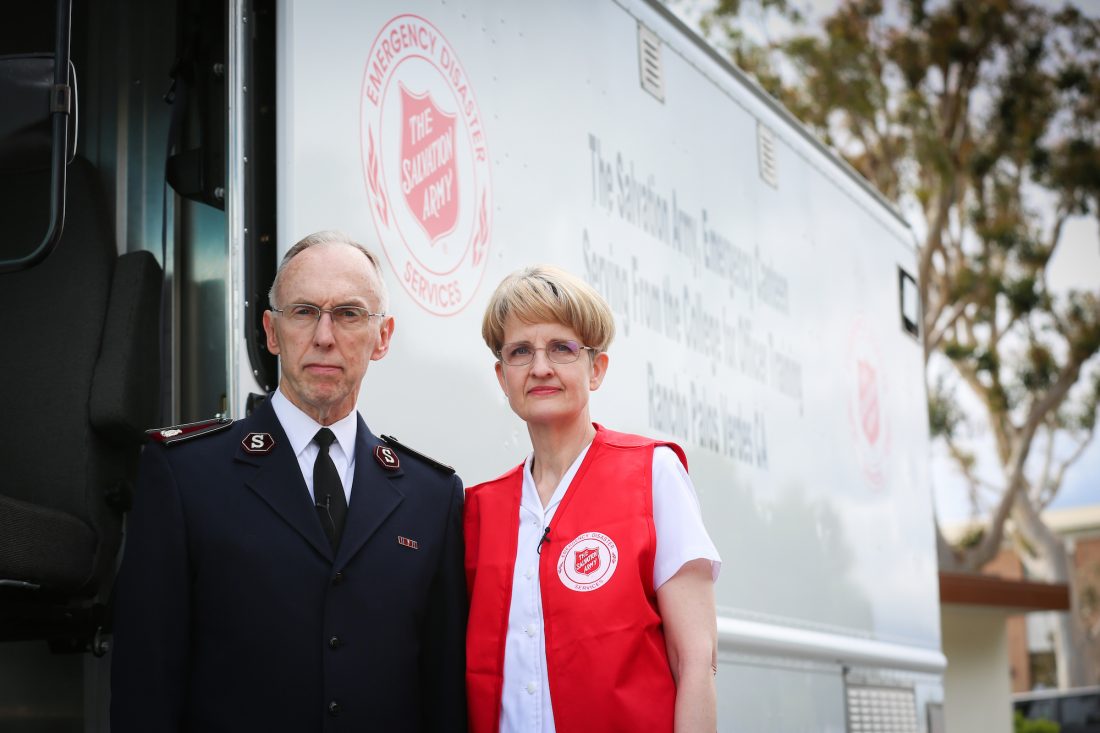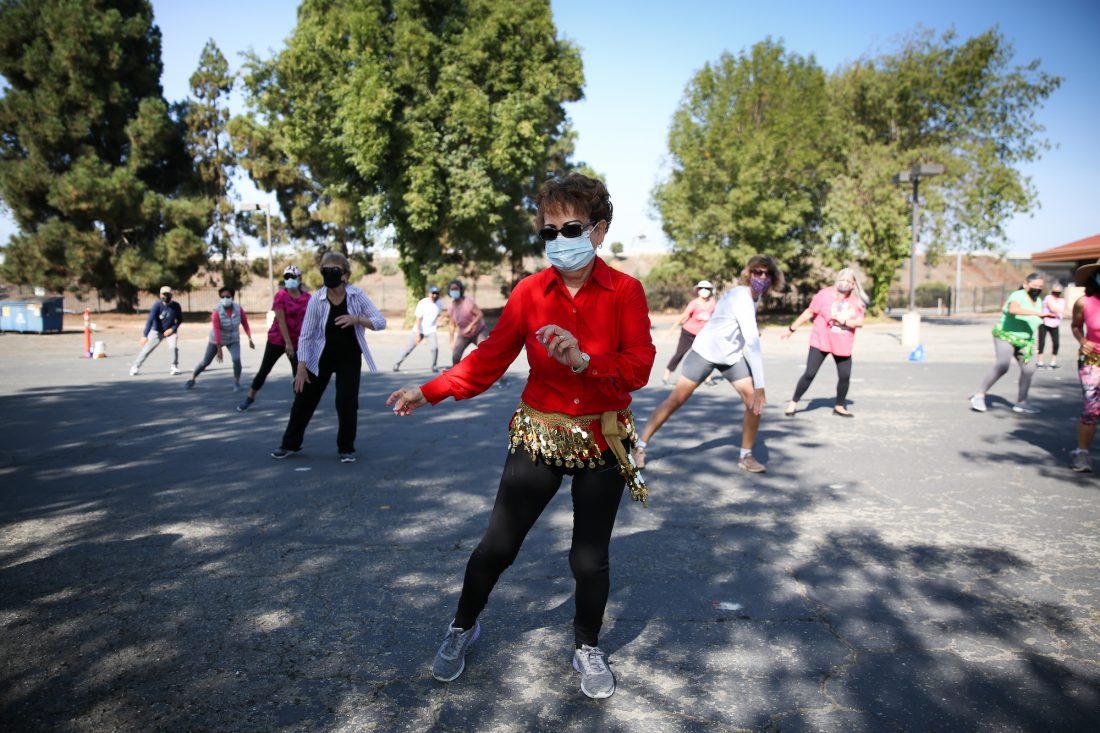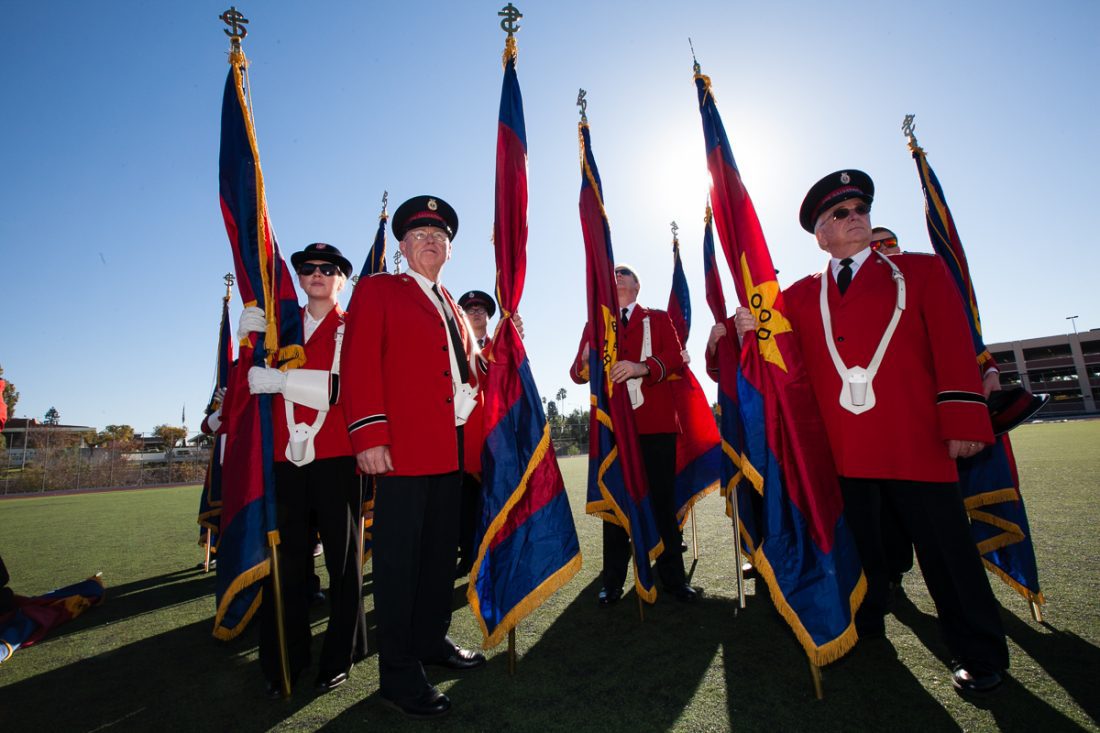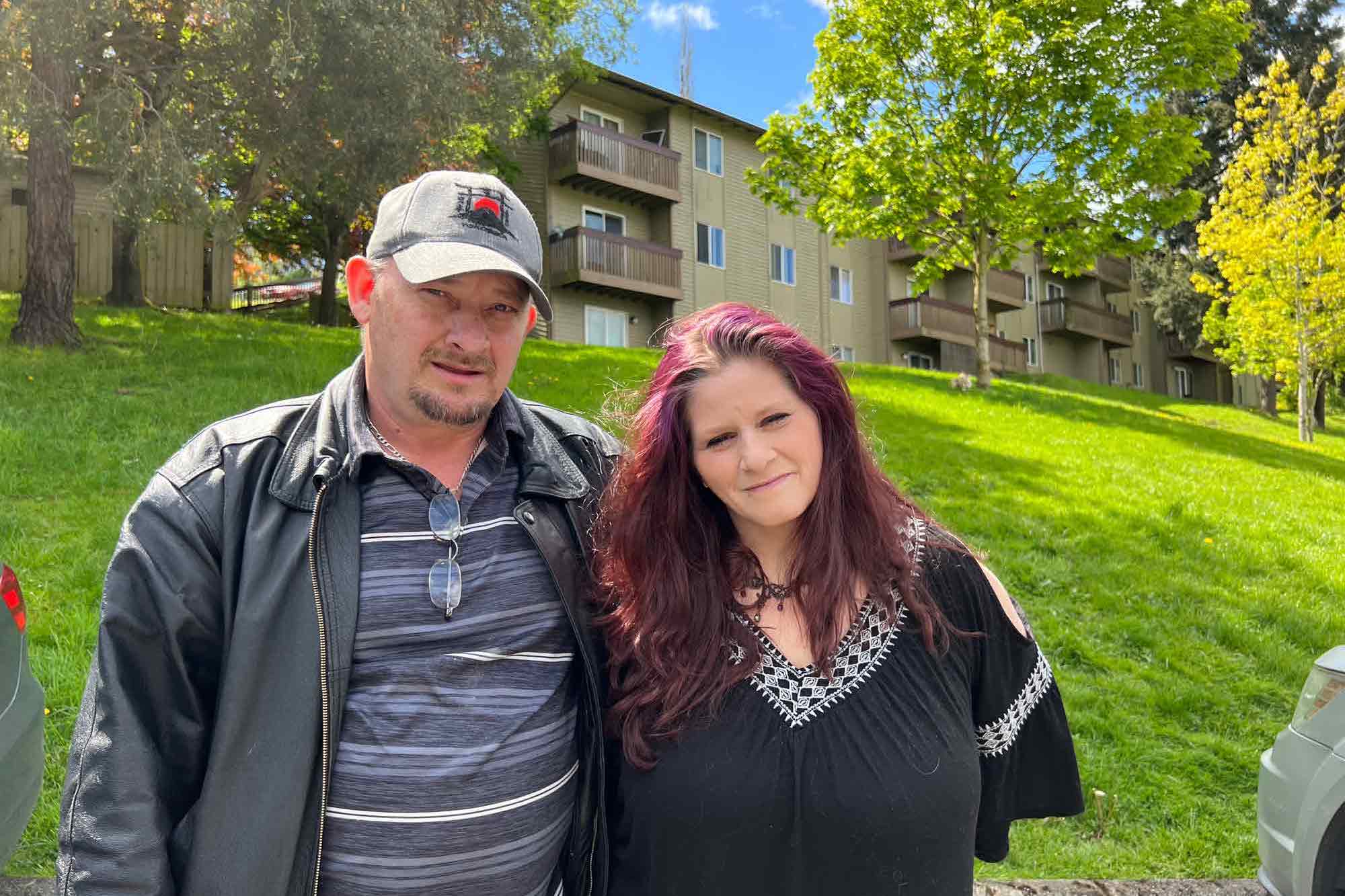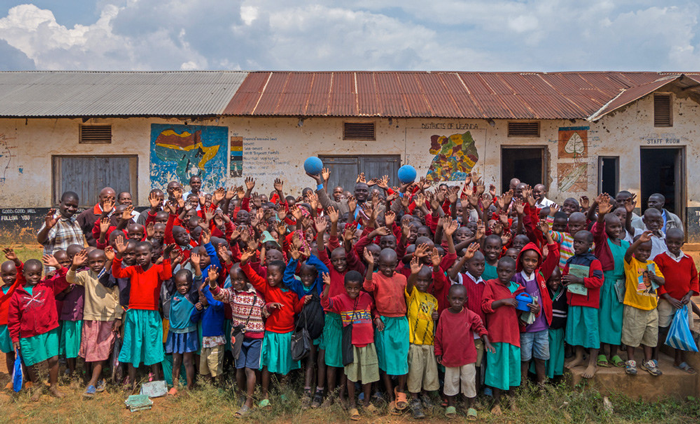What national leaders Commissioners Kenneth G. and Jolene K. Hodder see for the year ahead.
As national leaders of The Salvation Army in the United States, Commissioners Kenneth G. and Jolene K. Hodder have led the Army through its response to the pandemic since July 2020.
It’s a tenuous time for the country as 2020 marked the most significant jump in poverty since the government began tracking it and some 63 percent of Americans live paycheck to paycheck. Fighting food insecurity, housing instability and more, The Salvation Army provides service in every zip code to keep families from crossing over the line.
As The Salvation Army enters the New Year, we sat down with the Hodders during a visit to the Western Territory in mid-November 2021 to talk about their ministry experience and vision for the year to come.
What’s it been like to serve as national leaders for more than a year now? Any highlights?
Jolene K. Hodder: There are so many highlights to this last year. So many places that we’ve seen and so many ministries that we’ve seen. But I think for me, recently, I was at She Leads America in Washington, D.C.
I think the best thing that happened to me that night was to be in this room with all of these very powerful women. And after I spoke, I sat down and literally there was a line of women telling me how The Salvation Army had impacted their life. One woman came up to me and said that her mother was that single mom that The Salvation Army took care of. Because of her, they had food on the table. The stories just went on and on and on.
One person came up and said that she was a Christian because of The Salvation Army. She stopped in the meeting and she didn’t go to the altar, but somebody came up and touched her on her shoulder and said, “Do you need prayer?” And she said, “No.” She said that that awakened this spiritual desire for her to have something more and to know what they were talking about. She said she believes that that’s when the spirit started working in her.
So it’s just the stories you hear all over America of how The Salvation Army has touched people.
Kenneth G. Hodder: I think what stands out in my mind is the first altar call I witnessed after the pandemic. To see in person, men and women renewing their commitment to Christ, publicly, or finding him for the first time, assured me both of the Army’s continuing presence, the power of its ministry and the need of people. I think that moment, which occurred just a few months ago, was one of the most powerful for me in the past year.
What do you think you’ve learned about The Salvation Army in your time as national leaders that surprised you in some way?
Jolene K. Hodder: How quickly The Salvation Army can respond and how flexible we are, from a national standpoint, because we are in every zip code. I saw various times, during the pandemic and during some disasters, how quickly we can be on the front lines, serving people when other organizations are just trying to figure out what they’re going to do and how to get people there.
Kenneth G. Hodder: We had a chance to serve in Hurricane Ida in the South. We were astonished at the level of professionalism, the facilities, the speed, the effectiveness of Salvation Army service in places where there were no other organizations. And there was no official government presence. And yet there was the Army doing its work. So that was a great joy. Your question was though, what has surprised us? None of that surprises us about The Salvation Army.
Jolene K. Hodder: I think it surprised me on a national level. I know that we do that locally, but to see nationally how we respond, I think was overwhelming to me.
In The Salvation Army, we have all of our rules and regulations and our accountability and our structure. And so to think that all of those things work together so that we can respond quickly and so that the right hand knows what the left hand is doing and the donations are there and all the different pieces of the puzzle come together, even at a national level. I just find that amazing.
What have you learned about God in this time?
Jolene K. Hodder: He thinks out of the box. He really does. I mean, there is nothing old-fashioned about God; there is nothing stale. It just amazes me sometimes how he works. And it’s quite often completely the opposite of how we think it should work, but he works one miracle after another, every day in the Army.
Kenneth G. Hodder: I am more confident than I ever was of his sovereignty over all things, all people in all times.
What have you learned about yourselves from this vantage point?
Jolene K. Hodder: That I can do all things through Christ who gives me strength (Phil. 4:13). In The Salvation Army, so often we’re not trained to do everything, but we’re thrown into every situation, and time and time again, the Lord proves that he can work through me through my weakness. And as a matter of fact, when I’m at my weakest, he’s the strongest. He works through me.
Kenneth G. Hodder: One of my weaknesses is impatience. I would like to think that the past 16 months has helped me to understand a little bit more about my need for patience. And I hope it has expanded my capacity, somewhat.
As this New Year begins, what’s your vision or your priority for The Salvation Army?
Kenneth G. Hodder: This is clearly a doughnut moment. Everything that we see and everything that we hear and everything that we’ve seen in such publications as The Chronicle of Philanthropy, suggest to me that this is a moment at which The Salvation Army can grasp both its physical and its spiritual ministries. And by harnessing the two of them together, transform more lives than ever.
There is a holistic dimension to the Army’s ministry and if ever we’ve seen the need for holistic ministry, it is now. It’s not just physical, it’s psychological and it’s emotional. And it’s medical. Every part of our being has been touched by this pandemic. And there is no organization better able to address it than The Salvation Army. So as 2022 dawns and we confront what we are referring to as pandemic poverty, I believe the Army is in a tremendous position to help lots of people.
When you say “pandemic poverty,” what is the reality for people in America? And how do you think The Salvation Army can best meet the needs of today?
Kenneth G. Hodder: In the Great Recession of 2008, 2009, we saw enormous dislocations in the economic environment. However, the greatest level of need in terms of The Salvation Army, was not seen until 2010 to 2012. In other words, it was a lagging impact. That was because people were at the point of rebuilding their lives in those years, following the collapse.
Well, what have we seen in the past year? We’ve seen a lot of people lose their jobs. We’ve seen a lot of shifting in the markets and the coming few years, based upon what we know about what has happened in the past, will put enormous strains upon millions of lives.
As eviction moratoriums come to an end, as people find a need to be retrained from one industry to another, as people confront the medical issues raised by deferred surgeries and treatments that could not take place during the pandemic, as small businesses continue to struggle in the next couple of years, we’re going to see a lot of circumstances that we believe are going to put The Salvation Army in a position of having to do even more.
Within the coming year, we anticipate needing about $175 million—which is more than we raised in 2020—in order to meet the expected demand.
That is one reason why our Christmas campaign was centered around Hope Marches On. This is a time at which struggling families that are hardworking and dedicated to their loved ones are going to be tested. And we want to be there to help them. To avoid the decision: do I pay my health bill or do I put food on the table? Do I pay my rent, which has accumulated an enormous balance, or do I buy Christmas presents for the kids? That sort of decision-making is going to be increasingly common in the months to come.
So all of that to say, the Army’s got a lot of work to do in the days to come.
What does it mean to hope?
Jolene K. Hodder: Anything is possible with hope. Anything is possible. Without hope, you shut down. And The Salvation Army, since the very beginning, since our founding, it’s all been about hope in Jesus Christ, giving people the sense of, it’s going to be OK. In the end it’s going to be OK. And if it’s not OK, it’s not the end.
Kenneth G. Hodder: Hope is not sentimental. It is not a Hallmark movie.
Hope is the recognition of the potential for transformation. It is a willingness and a joyful recognition of the fact that there’s something better yet to come. Think about it.
Our founding fathers: “We hold these truths to be self-evident, that all men are created equal, that they are endowed, by their Creator, with certain unalienable rights.”
Think of Abraham Lincoln: “Let us here highly resolve that these honored dead shall not have died in vain, but that government of the people by the people.”
FDR: “You have nothing to fear but fear itself.”
And ultimately, Martin Luther King, Jr.: “I have a dream that one day my little children will live in a country where they’re judged, not by the color of their skin, but the content of their character.”
All of those situations look toward transformation and the institution of something that hasn’t been there in the past. Something good, something strong, something lasting.
The best example of it though is Luke 18:27, what is impossible with men is possible with God.
So to hope is to say, “Yes, that can happen.” And we would like to believe that spirit continues to infuse the thinking of millions of Americans who have been struggling, but that if we can give them a little guidance and a little support, they’ll be able to achieve something better.
Hope pulls you forward.
As we look toward this anticipated increase in need, and after months and months of responding at a higher level, are we able to keep up the pace? What’s the plan to keep up?
Jolene K. Hodder: We have no choice. There are people out there who need us.
Kenneth G. Hodder: We have no choice. But I think we’ve learned the lessons that will allow us to function at a higher level in terms of our systems. Take Pathway of Hope—we’re doing interviews over Zoom now. Did we do that before? No. Has that expanded our capacity? Absolutely. So in part, it’s technological, in part it’s systems.
I have no doubt that we’re able to do it.
There’s a lot of talk these days about burnout in the workforce. How are we working to prevent that, especially among our frontline officers and employees, what are we doing to consider those needs?
Kenneth G. Hodder: A dedicated adherence to the regulations providing for furloughs and quite honestly, officers because they are officers and our employees because they are so dedicated, sometimes struggle with saying, “Well, I’m not so sure that I can take that time off.” And we just have to make sure everybody gets the rest they need.
Jolene K. Hodder: We need to encourage taking a Sabbath. I know that’s something that I struggle with and I’m getting better at. There’s a reason that the Lord asks us to take a Sabbath, it’s life-giving not only to ourselves but to our ministry.
We’re seeing reports on declining church membership. Gallup reported last year that church membership had fallen below the majority for the first time in America. How has The Salvation Army been affected and are we responding?
Kenneth G. Hodder: It’s difficult to generalize on that point right now. I don’t think we have enough data to give us a broad understanding of the question. However, I think there is a sharp distinction to be drawn between what people would understand to be the measure of church involvement and commitment, which is Sunday morning attendance, and what we understand in The Salvation Army to be the manifestation of a life of committed discipleship to Christ. The Salvation Army combines both its spiritual formation and religious foundation with a commitment to doing something.
So if there is any part of the church that is benefiting from this notion that we need to reach out and help others, it is The Salvation Army. We sense no decline in the number of volunteers who want to be involved with The Salvation Army. And while therefore we might see some variations in terms of the number of people who are there on a Sunday. I don’t think I can say that we are suffering. I think people are there and they are doing what God is calling them to do. And then that ultimately is going to prove very beneficial to us.
Jolene K. Hodder: I can’t help but think, we were serving during COVID, and we were both given a T-shirt that says, “The church has left the building.” And I think that’s the true Church. It’s not the Church that comes necessarily and sits in the pews. Worshiping is important and fellowship is important. The Church has always been called to go out of the building and I think we have done that more than ever during COVID, and hopefully we will continue to do that.
Kenneth G. Hodder: Literally leaving the building.
Jolene K. Hodder: Think of the online meetings; we hear story after story of people who would never go into a church, who have accepted Christ by watching one of those. Think of the shut-ins who have never been able to go to a worship service and now they’re able to worship in their homes. I think a lot of positive has come out of this as well. We just need to kind of redirect ourselves.
A lot has been hard in this pandemic, but there are those silver linings. In 10 or 20 years when we look back on this period of time, how do you hope it changes The Salvation Army?
Kenneth G. Hodder: We pray every day that they would look back on what we did at this time and say they were faithful.
Jolene K. Hodder: And to continue to be innovative in everything that we do. Sometimes it takes a pandemic to break up some of the traditions that weren’t working or the defaults. We’ve had to be creative and I think hopefully this has started afresh the Army, rebooted us, I guess.
Do you have a personal word for the year in 2022, something to focus on throughout the year?
Jolene K. Hodder: I do—abundance. Because I think this last year, so much has been pulling in—not with the Army, the Army has been out there—but I think personally, a lot of people have kind of hunkered down and it’s been scarce, life has felt scarce. So I’m looking at the word abundance because I think that’s the way the Lord wanted us to live. We know from John 10:10: The thief comes only steal and kill and destroy, but I have come that you might have life and have it abundantly. In my ministry, in my personal life, I want to experience and share that abundance that can be found in Christ.
Kenneth G. Hodder: I’ve never adopted a word. I do have a personal mission statement. I still write that in my DayTimer every month—and I still get ripped about having a DayTimer, too. But that’s another story.
What would be your message to Salvationists at the start of 2022?
Jolene K. Hodder: It’s an exciting time for The Salvation Army because we can do anything now. We’ve been creative. We’ve gotten out of the building. We have used technology like we’ve never used it before. We were forced to do so much and now we have a blank slate ahead of us. If we just allow the Lord to direct us, I think great things are in store for the mission of The Salvation Army and to spread the gospel.
Kenneth G. Hodder: Do the mission.
Do Good:
- You’ve probably seen the red kettles and thrift stores, and while we’re rightfully well known for both…The Salvation Army is so much more than red kettles and thrift stores. So who are we? What do we do? Where? Right this way for Salvation Army 101.
- How do we treat everyone with love and kindness, as if they were our neighbor? Get the Do Good Family Roadmap and take a 4-week journey for families in how to be a good neighbor. Follow the guide to see what the Bible says about the art of neighboring and take tangible steps together on your printable roadmap to be a caring, helpful, welcoming and supportive neighbor right where you are.
- Learn more about The Salvation Army Western Territory’s Diversity, Equity and Inclusion efforts.











